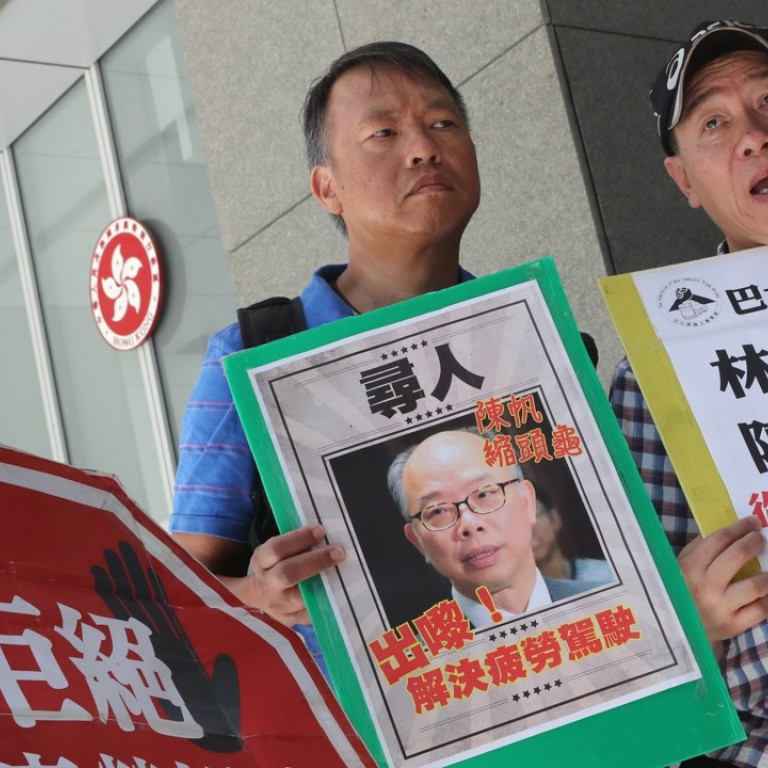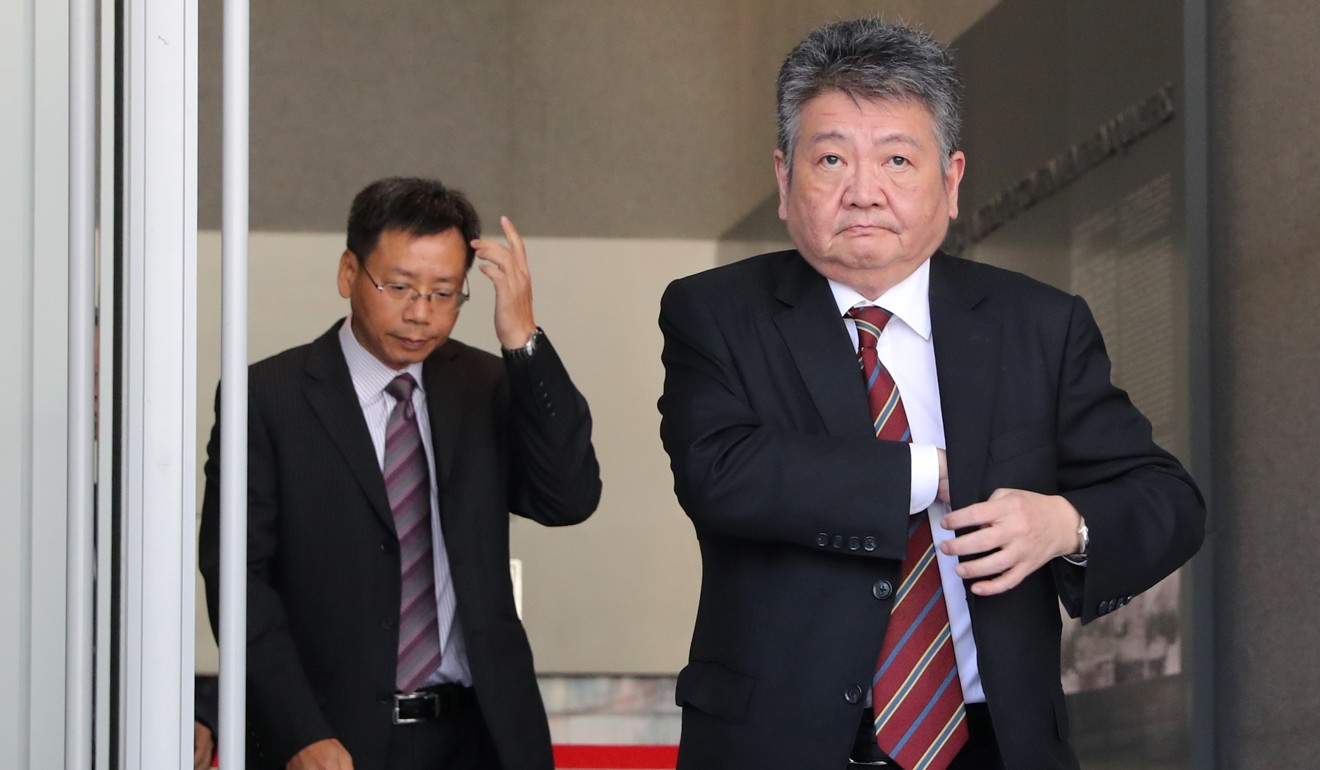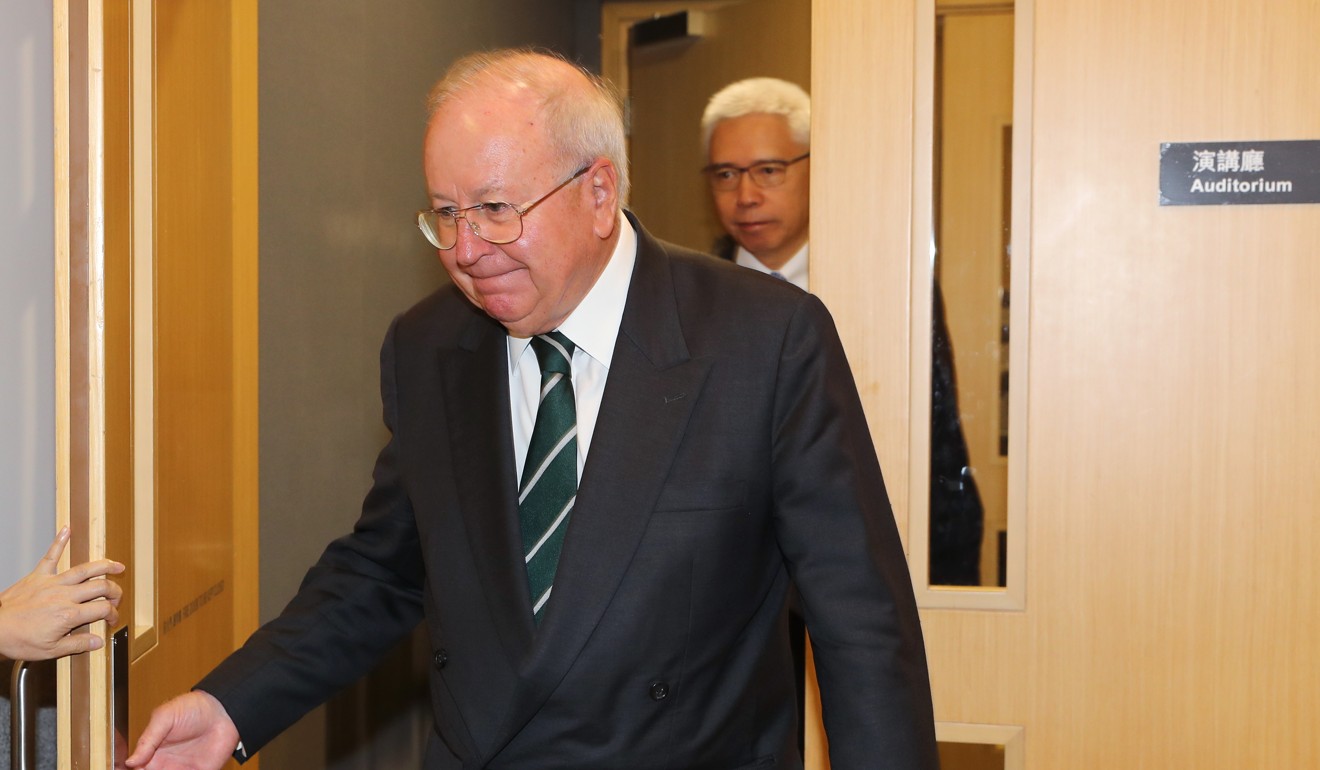
Hong Kong bus companies paying new drivers 15 per cent less than in 1998 ‘because market lets us’ says Citybus chief Samuel Cheng
Economist estimates that in real terms low-skilled workers have been given a 28 per cent pay cut working in ‘sad industry’
Hong Kong’s bus drivers are being paid between 10 and 15 per cent less than they were 20 years ago, the city’s bus companies admitted on Tuesday.
A city economist said that in real terms that actually equated to a 28 per cent cut in salary, a poor reflection on what he termed a “sad industry”.
But bus bosses remained defiant, and defended the lower wages saying more people wanting jobs meant they did not have to pay more.

According to figures supplied by Citybus and New World First Bus (NWFB), a new driver’s basic salary at Citybus in March 1999 was HK$17,106 (US$2,000) a month, while in September 1998, drivers that transferred from China Motor Bus to NWFB earned HK$18,184.
Now, Citybus is paying HK$15,364 to new hires, a 10 per cent drop, while NWFB also pays HK$15,364, or 15 per cent less.
The salaries were disclosed to an independent review committee hearing into the regulatory system for franchise buses. The three-member committee, which is chaired by Mr Justice Michael Lunn, who is vice-president of the Court of Appeal, was set up after 19 people were killed and 65 injured in an accident in Tai Po, Hong Kong’s deadliest road accident in 15 years.
Shorter hours on the road for 13,000 Hong Kong bus drivers after Tai Po crash but union worries about lower pay
Giving evidence, Samuel Cheng, the managing director of Citybus and NWFB, defended paying lower salaries and argued that the existing job market allowed companies to hire new blood on the cheap.
“We shouldn’t compare the current basic salary for drivers with 20 years ago,” he said. “During different periods there were different pay structures based on the changes in demand and supply in the labour market.
“In the past it was very difficult to hire new drivers, but gradually after 2004 we could attract new blood even with a lower basic salary.”
Cheng also said that drivers who had completed a year with the company were given a pay raise, and the company had been doing that for the past 10 years.
“For this year, we are still in discussion with unions about the pay rise of this year,” Cheng said. “So far we haven’t reached a decision [on how much] yet.”

Economist Andy Kwan Cheuk-chiu, director of the ACE Centre for Business and Economic Research said in real terms, the basic salary for drivers dropped by about 28 per cent compared with 20 years ago.
“This is a sad industry,” Kwan said. “Bus drivers are low-skilled labour and for the older drivers they can’t find work elsewhere. That’s why their basic salary is contained at a low level.
“For bus firms facing stiff competition from MTR, in order to squeeze more profit they have to further restrain the labour cost.”
In 2017, Citybus recorded a profit of HK$84 million, while NWFB recorded a profit of HK$77 million.
Safety measures enhanced along Tai Po Road after horror Hong Kong bus crash
The independent committee was created by Chief Executive Carrie Lam Cheng Yuet-ngor after the deadly crash involving a KMB double-decker bus in February highlighted growing concerns over whether bus operators have put in place sufficient measures, training, support and effective management for drivers to ensure safety.
Rising tensions over working hours and pay saw some drivers stage a work-to-rule protest last week, calling for better welfare and the removal of the 14-hour shifts that lead to fatigue driving. They threatened to escalate their industrial action if their demands were not responded.
At present Citybus and NWFB employs 3,675 full-time drivers, and 660 part-timers, with about 125 vacancies.
Cheng admitted companies had struggled to hire drivers over the past few years, but denied low pay was keeping people away.
“I don’t think pay is the main reason,” he said. “Sometimes applicants come to us because our bus routes are closer to where they live, usually in remote places in New Territories. Every day we have people to apply a job with us, but due to our requirements we keep on looking for suitable drivers.”
Unions split over new pay deal for bus drivers following deadly Hong Kong crash
Cheng said that as most drivers needed to work overtime for two hours a day, on top of their eight-hour duty, they could normally earn about HK$20,000 a month.
He also admitted that due to a shortage of manpower, bus drivers had no choice but to take the overtime shifts assigned by their supervisors.
“But they can swap shifts with other drivers,” he said.
Cheng told the committee Citybus and NWFB had formed a road safety committee which would roll out a series of measures, including enhancing training for drivers, and installing black boxes with real-time capability to alert drivers whenever they are speeding.

